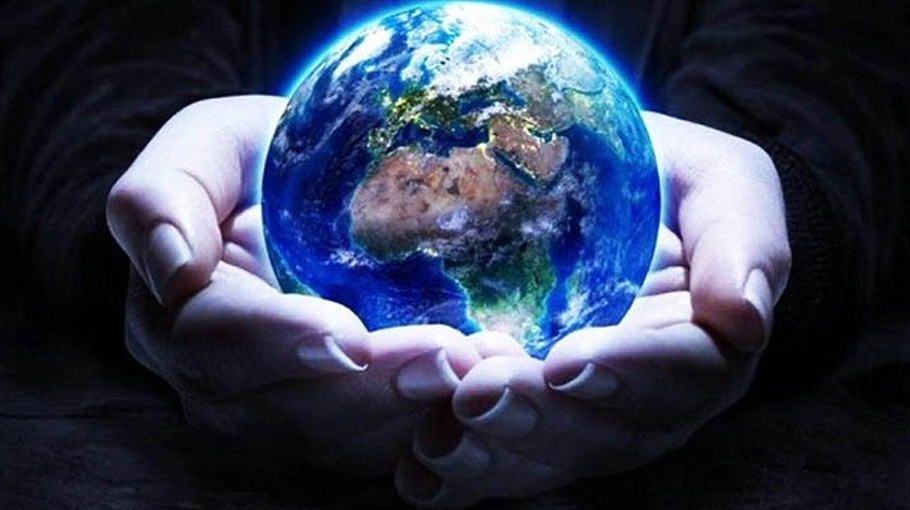We want stability in the world

Russian President Vladimir Putin announced military operation in Ukraine on 24 February, 2022 in a major climb of the Russo-Ukrainian conflict that began in 2014. This military operation has been termed as the largest military assault on a European state since World War II and it is said that it has caused Europe's largest refugee crisis since that war.
Following the Ukrainian Revolution of Dignity in February 2014, Putin said that the North Atlantic Treaty Organization (NATO) had threatened Russia's security by expanding eastward since the early 2000s – a claim disputed by NATO – and demanded Ukraine be barred from ever joining the alliance. The United States and others accused Russia of planning this military operation in Ukraine, which Russian officials repeatedly denied as late as 23 February 2022.
The background of this war in summary is that when Putin signed the treaty on the ‘Restitution of Crimea and Sevastopol inside the Russian Federation’ on 18 March 2014, the Crimean Peninsula has traditionally had a special status within modern Ukraine. Unlike any other part of the country, it was organised as an ‘Autonomous Republic’, enjoying a certain degree of political autonomy. Prior to its formal transfer to the Ukrainian Soviet Socialist Republic in February 1954, Crimea had been a part of the Russian Soviet Federative Socialist Republic (RSFSR) within the Soviet Union. Among Russians, it is a commonly-held assumption that Crimea has ‘always’ been a part of Russia. Vladimir Putin himself, during his 18 March address to parliament marking Crimea’s annexation to Russia, declared that “in people’s hearts and minds, Crimea has always been an integral part of Russia”. The following month, an expedition of the Russian Military Historical Society visited the peninsula, with one of their stated intentions being “to remind the global community that Crimea has always been Russian.” As recently as late October, Nikolay Ryzhkov, a prominent member of Russia’s upper house of parliament, claimed that Crimea “since ancient times … was primordially Russian land”. This view is now extremely common in Russia.
Russian interventions in South Ossetia and Crimea indicate a major shift in Moscow's policy towards the former Soviet republics. Although there were significant differences between the two interventions, improved Russian military capabilities reveal the Kremlin's plans to project power in the near abroad. The Russian leadership used similar legal justifications for the two interventions, based on the Kosovo precedent, opening the possibility of further military action in the former Soviet space. Notwithstanding the legal excuse, Moscow mainly intervened in Georgia and Ukraine to prevent further NATO enlargement eastwards, regain geopolitical influence regionally, and respond to perceptions of insecurity and a sense of humiliation. With the possible exception of the Baltic States, the rest of the former Soviet republics could, sooner or later, fall under Russia's sway.
Later on 21 February 2022, Russia recognized the Donetsk People's Republic (DPR) and the Luhansk People's Republic, two self-proclaimed statelets in Donbas controlled by pro-Russian separatists. The following day, the Federation Council of Russia authorized the use of military force abroad, and Russian troops entered both territories. On 24 February, Putin announced a "special military operation" to "demilitarise and denazify" Ukraine. In response, Ukrainian president Volodymyr Zelenskyy enacted martial law and mobilization (Source: "Conflict in Ukraine". Global Conflict Tracker. Council on Foreign Relations. 28 February 2022).
The United Nations General Assembly has adopted a resolution demanding that Russia to immediately withdraw all troops, with world powers and tiny island states alike condemning Moscow (Source: russian-troops-in-streets-of-kherson-mayor-says-liveblog, Al Jazeera). 141 states voted in favor of the said UNGA resolution, five voted against the resolution, and 35 states including Bangladesh, India, China abstained from voting. The International Court of Justice ordered Russia to suspend military operations, and the Council of Europe expelled Russia.
While analysing Bangladesh’s stance in this situation, it is vital to revisit what role Russia played during liberation war of Bangladesh. Our beloved country, Bangladesh’s birth in 1971 was a midwife by the Cold War that had divided the world into two ideologically opposed camps and wet-nursed our early politics. For Bangabandhu Sheikh Mujibur Rahman, setting the parameters of the new state's foreign policy was a sine qua non for developing national resilience for his people's prosperity and the state's survival. The main points of Bangabandhu's foreign policy were: 'Friendship With All, Malice Towards None' and 'Friendly Coexistence'. Based on this, today's Bangladesh has been able to build a strong relationship with the international community.
When the Father of the Nation Bangabandhu Sheikh Mujibur Rahman was alive, all the countries of the world except Saudi Arabia, Sudan, Oman, and China recognized Bangladesh as an independent state. Bangabandhu's leadership, foresight, and personal relationship with world leaders contributed significantly to this success. It is true that during the period of liberation of Bangladesh, Russia has always expressed its support towards Bangladesh and Bangladesh shall be ever grateful to Russia for its support and friendship. Russia (the USSR at that time) and Bangladesh started building a mutually beneficial tie in the early 70s, from the very first days of Bangladesh as an independent state. Diplomatic relations between the then USSR and Bangladesh were established on January 25, 1972.
The foundation for friendship between our countries had been laid even before that. The Soviet government raised its voice in the international arena against the atrocities being done to the people fighting for their freedom in 1971 and that was not simply a political decision but the manifestation of the deep and sincere sentiments of the Soviet people who were outspoken in their support for national-liberation movements all over the world. Immediately after the Liberation War the Soviet Union extended its helping hand to the Bangladeshi people and assisted the newly-born state in the reestablishment and development of its economy. The USSR also provided its support to Bangladesh in acquiring international recognition and joining the UN. As we believe in peace, Bangladesh also expressed grave concern about the situation in Ukraine and called for an immediate cessation of military operations in the Ukrainian territory. Bangladesh believes the obligations stipulated in the Charter of the United Nations regarding the prohibition of the use of force, respect for sovereignty and territorial integrity, and peaceful settlement of international disputes must be complied with in all circumstances, without exception.
Bangladesh, therefore, urged for restraint by all parties and to immediately resume diplomatic efforts and dialogue to settle all disputes by peaceful means, and refrain from taking any action that may endanger international peace and security.
Bangladesh expressed its full support and confidence in the good offices of the Secretary-General of the United Nations and called upon him to undertake all efforts to initiate dialogue to end military operations in Ukraine.
Therefore, Bangladesh’s position is very much clear on its take on the Russia Ukraine War, and as a peace-loving nation, we don’t want instability in any part of the world. We understand that in a war, the ultimate sufferer is always the poor people, the people who are weak and helpless. We believe that war is a game of rich and famous people and it never helps poor people. Hence, as a dutiful citizen of this country, it is hoped that all the parties will take the necessary measures to put an end to this situation and to settle all disputes by peaceful means.
Tasmiah Nuhiya Ahmed is Advocate of Bangladesh Supreme Court, Junior Partner, FM Associates and Editor in Charge, Daily Our Time




